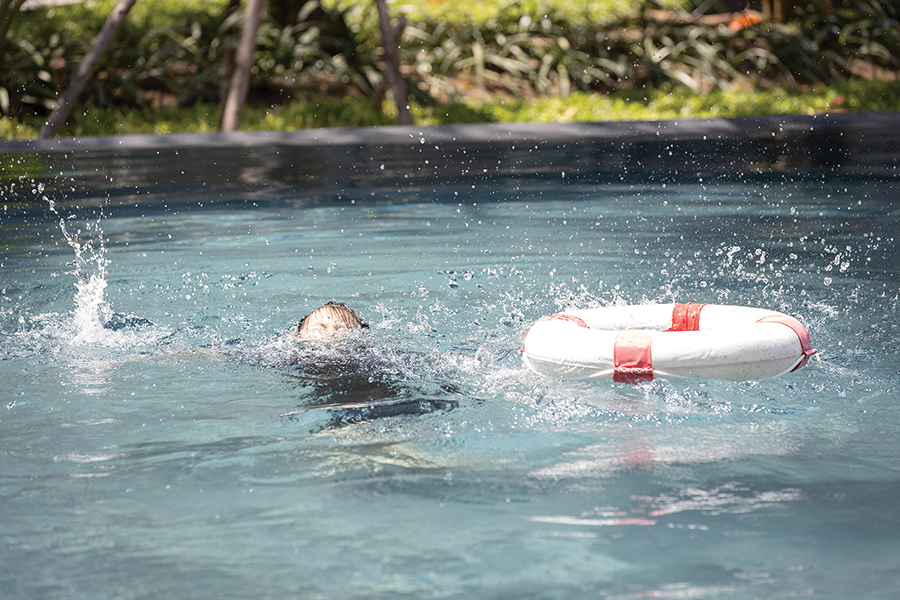Whether you’re spending a family day at the lake or enjoying a dip in your backyard pool, water safety should always be a priority. According to a study released in May by the Centers for Disease
Control and Prevention (CDC), more than 4,500 people drowned each year in the United States
from 2020–2022 – about 500 more drowning deaths each year compared to 2019. As you cool off this summer, Georgetown Fire Chief John Sullivan shares tips to ensure your aquatic adventures are both fun and safe.
NEVER SWIM ALONE
One of the most important rules of water safety, Chief Sullivan says, is to always swim with a buddy. “We always encourage folks not to swim alone because we never know when something can go wrong in the water, and adults and children sometimes underappreciate how dangerous water can be.” Learning how to swim effectively is important but can lead to overconfidence, he adds. “Even folks who are lifelong swimmers can drown because they had a medical event, and nobody was nearby to help.”
“We call drownings the silent killer because they often times occur without anyone knowing it’s happening.”
Georgetown Fire Chief John Sullivan
POOL SAFETY
Pools beautify our yards and make Texas summers more tolerable, but they can also pose a safety risk for families, pets, and visitors, Chief Sullivan says. He recommends installing self-closing gates, alarm systems, and pool covers. Hard covers are advised instead of soft ones, as they prevent individuals from falling in and getting trapped, much like someone falling through an ice-covered lake.
LAKE AND RIVER SAFETY
The safest place to swim is beach areas with gradual water entry, minimizing unexpected hazards like steep drop-offs and undertows. Always wear life preservers and stay within designated swimming areas, like those by Russell Park at Lake Georgetown.
Chief Sullivan also encourages everyone to exercise caution during boating excursions. “For a lot of people who use boats, there’s a complacency that sets in and they feel like they don’t need a life preserver because the water is calm. Sometimes there will be waves caused by other boats and people drown because they don’t have a life preserver.” He adds that alcohol and water activities don’t mix, as alcohol impairs judgment and creates a false sense of security that can lead to dangerous situations.

WHAT IF I SEE SOMEONE DROWNING?
Your first step should be to call 9-1-1 to get help on the way as quickly as possible. While waiting for help to arrive, try to get the attention of others nearby and then follow the “throw, tow, then go” method: throwing a life preserver or rope to the victim and towing them in, and only going in the water as a last resort. Drowning victims can panic and flail, often causing the rescuer to become an additional victim. Life preservers are available at Lake Georgetown by the beach access area at Russell Park.
BE MINDFUL OF WEATHER
Heat exhaustion can lead to cramps, fatigue, and dehydration — all especially dangerous when you are in the water. Always stay hydrated and take breaks out of the sun. Regularly check weather forecasts as storms can also pose a threat. Chief Sullivan says, “The last place you want to be in is water when lightning strikes.”
Scan the code for more water safety tips: cdc.gov/healthyschools/bam/safety/water-safety.htm.
